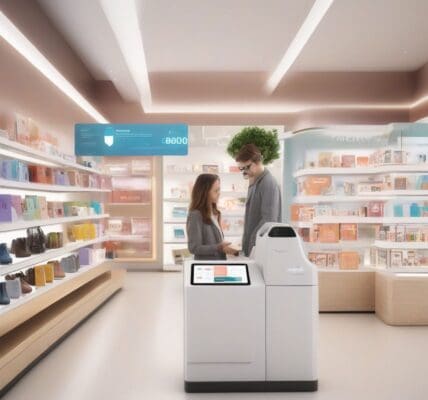Attracting talent from Generations Y and Z to the retail workforce requires a fresh approach that integrates artificial intelligence (AI) into human resource strategies. This younger demographic, having grown up with digital technology, seeks not just jobs but meaningful careers that align with their values and lifestyles.
Flexible work arrangements and advanced technological integration are crucial. This generation values work-life balance and prefers environments that support remote work and flexible hours. AI can automate routine tasks, providing employees with more time to engage in innovative and fulfilling work. For instance, AI virtual assistants can streamline operations, making remote work seamless and efficient.
Continuous learning opportunities are another cornerstone for young talent. AI-driven platforms can deliver personalized training and development programs, helping employees enhance their skills and advance their career paths. This targeted approach not only attracts talent but also fosters loyalty by showing a commitment to their professional growth.
Moreover, a purpose-driven work environment resonates well with younger generations. Companies leveraging AI can analyze employee feedback and engagement data to create a culture that prioritizes inclusivity and diversity. By implementing AI tools for fair hiring and promotion processes, businesses can build a reputation that appeals to value-driven candidates.
In summary, integrating AI within the retail workforce does not only address the immediate preferences of younger employees but also prepares organizations for a more efficient, inclusive, and innovative future. By focusing on these elements, companies can cultivate a workplace that attracts Gen Y and Gen Z talent, ultimately enhancing their competitiveness in the retail industry.











